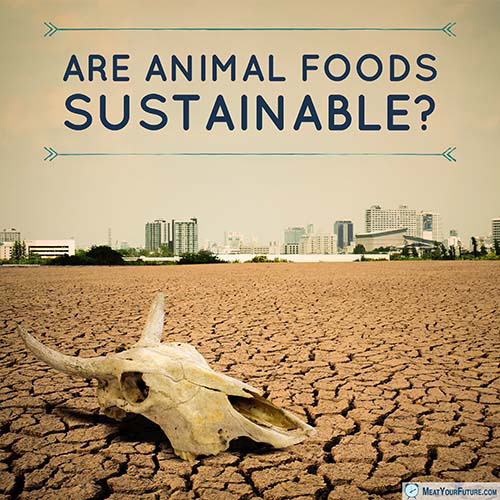|
A single 3-ounce serving of beef requires a staggering *338 gallons* of water to produce. For poultry (chicken meat), it’s *88* gallons. For pig meat (pork), a whopping *108* gallons. A single gallon of cows’ milk requires *880* gallons of water to produce. ↑ ↑ ↑ Think about this, and re-read ↑ ↑ ↑ Animal agriculture both has an enormous water footprint, and is also one of the largest sectoral sources of water contamination and pollution. In addition, per the UN, animal agriculture is also the largest driver of deforestation, and it produces more greenhouse gas emissions than the entire global transportation sector. If you consider yourself an environmentalist, and you care about fresh water and food security (not to mention deforestation, ocean dead zones, loss of biodiversity and climate change), consider whether you can justify continuing to support and finance such a destructive industry when there are healthier and far more sustainable plant-based alternatives. Especially as our human population continues to grow, ask yourself if it’s environmentally responsible or sustainable to continue consuming these animal foods? Just with respect to water, experts are clear that the answer is an unequivocal “NO”. They warn that fresh water and food shortages are expected in the near future, unless there is a dramatic and global decrease in animal food consumption. Please consider these issues, and stop consuming animal foods by going vegan. In doing so, you will be taking one of the most impactful positive environmental actions you can as an individual. Furthermore, you will also be withdrawing your support for the exploitation and slaughter of countless billions of sentient animals, and (as no small added bonus) will be making healthier food choices in your personal life too. |
